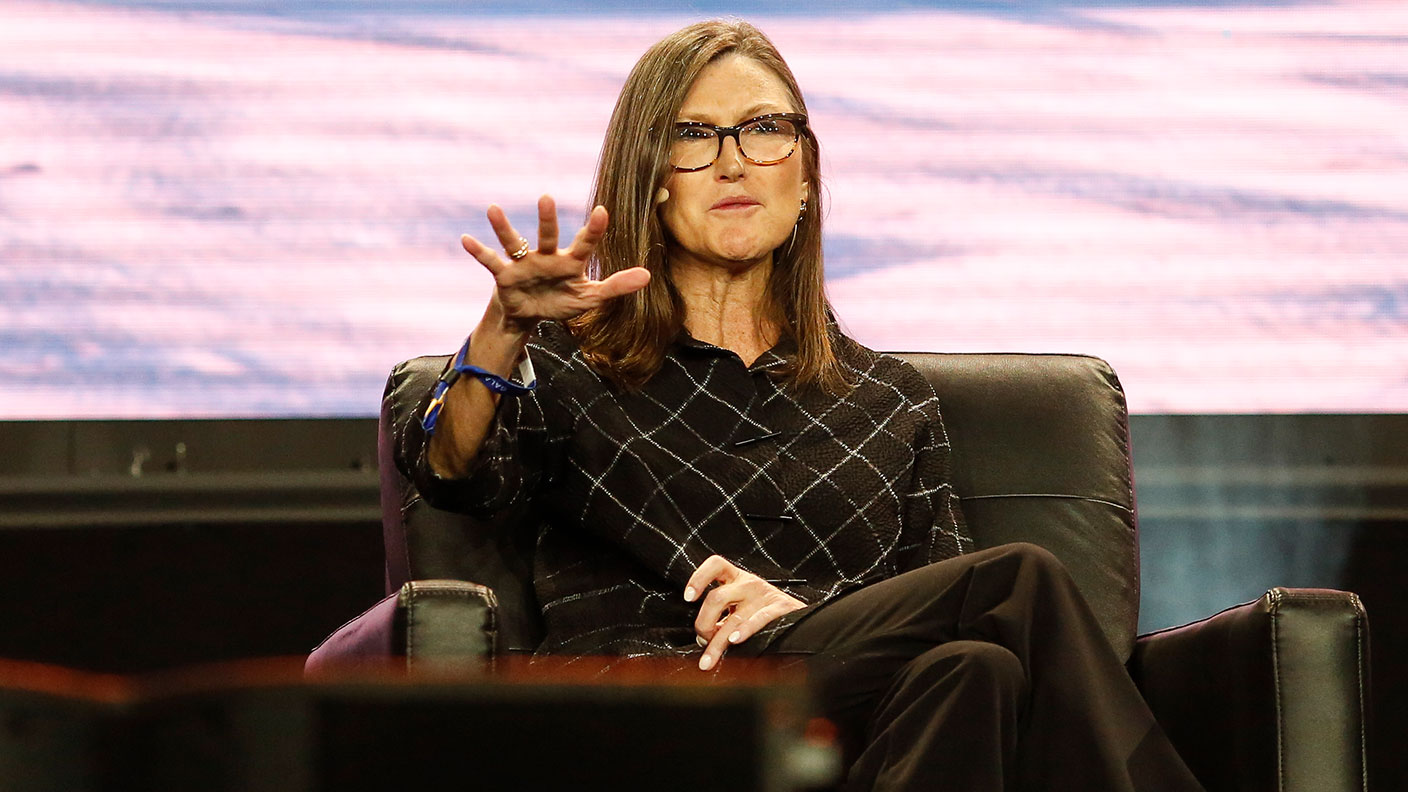If you don’t know what’s in your ethical fund, are you really an ethical investor?
With no universal definition of what counts as “ethical”, so-called ESG funds can cover a wide range of sins, from tobacco stocks to arms-makers. If you want to invest ethically, says John Stepek, you have to do it yourself.

Get the latest financial news, insights and expert analysis from our award-winning MoneyWeek team, to help you understand what really matters when it comes to your finances.
You are now subscribed
Your newsletter sign-up was successful
Want to add more newsletters?

Twice daily
MoneyWeek
Get the latest financial news, insights and expert analysis from our award-winning MoneyWeek team, to help you understand what really matters when it comes to your finances.

Four times a week
Look After My Bills
Sign up to our free money-saving newsletter, filled with the latest news and expert advice to help you find the best tips and deals for managing your bills. Start saving today!

Ah, ESG investing.
Environmental. Social. Governance.
Three words with, I think you'll agree, quite a wide range of meanings when you extract them from their context.
MoneyWeek
Subscribe to MoneyWeek today and get your first six magazine issues absolutely FREE

Sign up to Money Morning
Don't miss the latest investment and personal finances news, market analysis, plus money-saving tips with our free twice-daily newsletter
Don't miss the latest investment and personal finances news, market analysis, plus money-saving tips with our free twice-daily newsletter
Indeed, if you were to invest in an ESG fund, you might think you could be investing in virtually anything.
And it turns out that you are...
It'd take a bold manager indeed to argue the ethical benefits of smoking
"ESG" is the latest manifestation of ethical investing. Ethical investing is all about investing ethically. In the old days, it meant no cigarettes, probably no booze, no pornography (essentially irrelevant as there aren't many listed ways to buy that particular vice), no weapons, and no fossil fuels or miners.
These days, it's a lot more nuanced. You might be able to own an oil company, just as long as it is engaging with environmental issues and being nice to its staff and trying to mend its ways.
However, as Alan and Gina Miller, founders of wealth manager SCM Direct, have been digging into "greenwashing" the idea of giving a fund a lick of green paint in order to make it more saleable, rather than actually ethical in any way.
They've found exactly what anyone with an internet connection and any sort of interest in the topic would have found by themselves. That, in effect, the definition of socially responsible or "ESG" is so wide and ill-defined that you can pretty much own anything and still get away with calling yourself an ethical fund.
Now SCM has a habit of getting up the nose of the investment industry, and of course, Gina Miller is arguably best known for her stance on Brexit these days. As I said, none of this news is especially surprising to anyone who pays any attention to this stuff.
But it has a point. Because it seems pretty clear that lots of people don't pay attention to this stuff and just plump for the cuddliest-looking fund they can find so that they can get this grubby investment business over with as quickly as possible.
Among other things, SCM found "several ethical funds investing material amounts in tobacco, alcohol, gambling and defence stocks."
Now you can argue the toss on alcohol (it's not all bad), defence (what about self-defence and deterrents and "just wars"?) and maybe even gambling (it's just a bit of fun for most people). But it'd take a bold fund manager indeed to argue that tobacco stocks can be ethical.
Incidentally, performance has also been rubbish of the actively-managed ethical funds that SCM looked at, they'd underperformed the market by 2.5% a year on average over the three years to the end of June 2019. But that's not a reason specifically to avoid ethical funds it's a reason to duck out of actively managed funds (the passive underperformance was much lower at 0.8%).
You can't pay lip service to ethics
The core problem with ethical investing as the SCM data demonstrates is that there is no universal definition of what counts as "ethical". What's taboo to one person might be perfectly acceptable to another (particularly when we get into more esoteric views related to religion or culture or lifestyle, where ethics are most definitely in the eye of the beholder).
So if you genuinely want to make sure that the companies you buy fit with your specific ethical code, then you had better be prepared to do the leg work.
Investing is hard. Finding good companies at prices worth paying is difficult. Investing ethically is even harder, because not only do you have to find good companies at decent prices, you also have to find them within a universe that falls within your ethical strictures.
What really irritates me about ethical investing is that I think it's mostly marketing schtick ("greenwashing") that plays to the fact that many people feel vaguely squeamish about investing. At some level, they feel that the idea of investing their money at all is in some way unethical.
Putting it bluntly (and I'm exaggerating for effect here), whacking an "ethical" badge on a fund is a cynical way to assuage the conscience pangs felt by your average Guardian reader when they put their money in something as icky and capitalistic as a company's shares.
Don't get me wrong I think that you should consider your ethics when investing. You probably take them into account in most other activities, so why not investing? And you might be able to find a fund manager who fits the bill sufficiently to be happy to invest your money with them. But you'd better keep an eye on them. That all takes time and effort.
But without wishing to sound heartless, if you simply buy an off-the-shelf fund with an "ESG" or an "ethical" or a "green" badge, and you don't bother to look into what the fund owns, or what its ethical policies actually are, then you shouldn't be indignant if you get a nasty surprise at some point in the future.
I have a lot of sympathy for people who invested with Woodford, particularly via their financial advisers. Yes, you could've got out earlier if you'd been paying close attention to what was going on, but his reputation was impressive and his decision-making so at odds with his prior record that the average private investor could be forgiven for being taken in.
But if you own an ethical fund that owns tobacco stocks as far as I'm concerned, that's on you. Yes, there should be better standards for all of this. But there aren't. So if this matters to you, don't outsource it to someone else. Do the work.
We'll be talking about ESG among many other things at the MoneyWeek Wealth Summit on 22 November book your ticket here.
Get the latest financial news, insights and expert analysis from our award-winning MoneyWeek team, to help you understand what really matters when it comes to your finances.

-
 How a ‘great view’ from your home can boost its value by 35%
How a ‘great view’ from your home can boost its value by 35%A house that comes with a picturesque backdrop could add tens of thousands of pounds to its asking price – but how does each region compare?
-
 What is a care fees annuity and how much does it cost?
What is a care fees annuity and how much does it cost?How we will be cared for in our later years – and how much we are willing to pay for it – are conversations best had as early as possible. One option to cover the cost is a care fees annuity. We look at the pros and cons.
-
 Are UK house prices set to fall? It’s not so simple
Are UK house prices set to fall? It’s not so simpleAnalysis Figures suggest UK house prices are starting to slide, but we shouldn’t take these numbers at face value, explains Rupert Hargreaves.
-
 Tesco looks well-placed to ride out the cost of living crisis – investors take note
Tesco looks well-placed to ride out the cost of living crisis – investors take noteAnalysis Surging inflation is bad news for retailers. But supermarket giant Tesco looks better placed to cope than most, says Rupert Hargreaves.
-
 It may not look like it, but the UK housing market is cooling off
It may not look like it, but the UK housing market is cooling offAnalysis Recent house price statistics show UK house prices rising. But John Stepek explains why the market is in fact slowing down and what this means for you.
-
 Think the oil price is high now? You ain’t seen nothing yet
Think the oil price is high now? You ain’t seen nothing yetAnalysis The oil price has been on a tear in recent months. Dominic Frisby explains why oil in fact is still very cheap relative to other assets.
-
 What can markets tell us about the economy and geopolitics?
What can markets tell us about the economy and geopolitics?Sponsored Markets have remained resilient despite Russia's war with Ukraine. Max King rounds up how reliable the stockmarket is in predicting economic outlooks.
-
 The tech bubble has burst – but I still want a Peloton
The tech bubble has burst – but I still want a PelotonAnalysis Peloton was one of the big winners from the Covid tech boom. But it's fallen over 90% as the tech stock bubble bursts and and everything else falls in tandem. Here, Dominic Frisby explains where to hide as markets crash.
-
 The market is adjusting to a new “short dreams, long reality” world
The market is adjusting to a new “short dreams, long reality” worldAnalysis As interest rates rise, things are starting to change, says John Stepek. Reality is biting back. Gone are the fanciful ideas built on hope – a business now needs a solid foundation.
-
 Are UK house prices heading for a fall?
Are UK house prices heading for a fall?Analysis UK house-price growth is slowing as interest rates rise. But interest rates aren’t all that matters for house prices, says John Stepek.